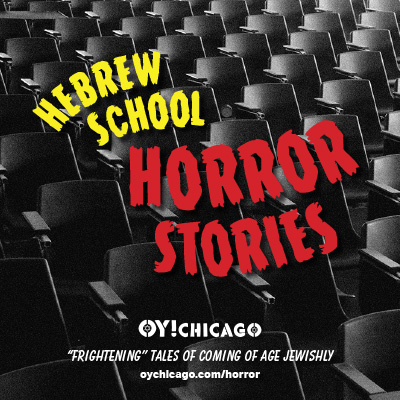I Survived Teaching 7th Grade Hebrew School
Permanent link
At the time, it seemed like a no-brainer. I could easily give up Sunday morning and Thursday evenings. I would be with an experienced co-teacher who could help me with the lesson plans. I had a curriculum and some general support from the administration. Best of all, I got paid. Teaching Hebrew school seemed like a great way to make some easy money.
As we prepared for the year, I was informed that I would be filling an opening in the seventh grade room. These kids had a lot of energy, I was told, but were basically good. Energy is good, I thought. I was excited for how my experience as a speaker, trainer and entertainer was going to be great for these kids. They were going to love me.

What I didn't account for was how much they would love to test me. They were bright and involved in sports, drama and other extra-curricular activities, but for some reason, when they walked into our classroom, all of that seemed to go away.
Hebrew school for them was a game of how much they could get away with. How many buttons could they push before I cracked under pressure?
The curriculum contained what I thought were rich discussion questions and interesting pieces to read, but something was lost in the delivery. Large group discussions resulted in contests to see which kid could grab the most attention by saying the most inappropriate things. The kids that actually did want to have meaningful discussion eventually gave up. Those that wouldn't stop talking eventually got sent to the office.
You can only send so many kids to the office and have so many authority figures (the education director, the Rabbi and so on) intervene before you wonder, who is really at fault? Is it the kids? Is it me?
As teachers, we made our share of mistakes that probably didn't help. One time we started to show them a Holocaust documentary without adequately warning their parents, which was probably not the best idea. The kids turned away at certain scenes and covered their eyes at others, and when we had them reflect in writing, it didn't go over so well. One of the kids wrote about how he was probably going to have nightmares now. Needless to say, we never finished watching the video.
We needed to try something different. Then it occurred to me -- a field trip. I had attended a fundraiser once at an equestrian center that specialized in helping children with disabilities. I found out they took volunteer groups to help clean the stables and help lead the horses around the ring. One of the volunteer coordinators had a connection to our synagogue, so we set up a special outing for our class.
For one thing, it was a relief to start our day without having to be "on" as teachers. We were able to just all relax up front, while the kids socialized.
After a tour of the facility during which the kids actually asked thoughtful questions, it was time to help out, and that's when you could really see the difference outside of the classroom.
One child was asked to lead a horse around the barn while a younger child who was maybe 6 or 7 years old rode the horse. My seventh grader smiled, the child on the horse smiled, and I think even the horse smiled. That much joy never happened back in the classroom.
More noticeably was how the experience impacted the kids who caused us the most grief back in the classroom. One of the volunteer tasks was shoveling the old hay out of the stalls so it could be replaced with fresh hay for the horses. Most of the kids recognized this was not the most glamorous of jobs and found ways to get picked for other assignments. The unlucky four were given shovels and a set of instructions. It wasn't more than a few scoops into their task that three of them stopped shoveling and started chatting. The fourth kid, however, who had behavioral challenges in the classroom all year long, was furiously shoveling hay. He was doubling his efforts to pick up the slack from his peers.
Getting the children to participate in the classroom was beyond pulling teeth, yet the kids who resisted formal learning the most were the most eager to jump in and participate at this barn. It was amazing to see how much had changed after a 45-minute bus ride. The change of scenery, or the fact that there was a clear connection between the work and helping others, made the difference.
The learning opportunities that worked best, it seemed, were the ones when I stopped trying so hard to get them to learn something and just let them discover and experience it for themselves.
Looking back, I learned a lot that year. The obvious lesson was that maybe I wasn't so cut out to teach seventh grade, but more importantly, I learned that training (my expertise) and teaching are different. Teaching involves transferring knowledge and a deeper understanding of what motivates learners to learn and requires more than energy and a sense of humor.
Would I teach Hebrew School again? I think I'll keep focusing on other pursuits that better reflect my talents. And when the time comes to think about my own children's Jewish education, however, I hope that their teachers will have already learned what I did that year.



.jpg)



